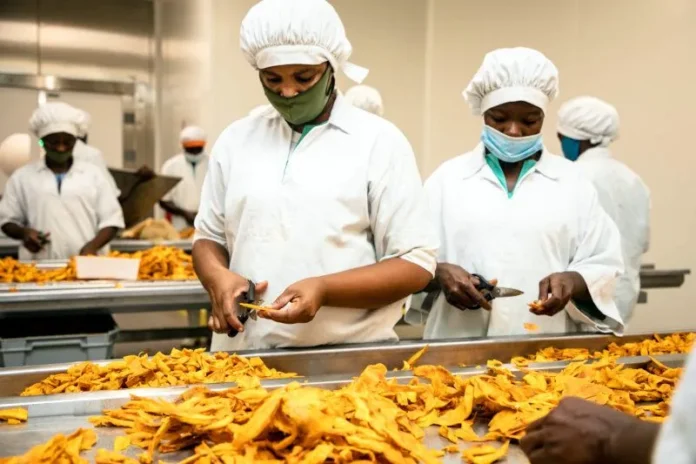BUSINESS ADVISORY
Nigeria’s rapidly growing population, currently over 200 million and projected to exceed 400 million by 2050, creates a compelling market for food processing entrepreneurs. The country’s demographic profile, with almost 50% of the population being young people aged fifteen and below, makes this opportunity especially attractive. These young consumers have a high propensity to consume, often driving significant household resources toward satisfying their needs.
This report, prepared by David Solomon Consulting Limited , highlights attractive processing opportunities in three major, readily available Nigerian crops: Tomatoes, Beans, and Rice. The technology for processing these crops is often available locally.
🍅 Tomatoes Processing Opportunities
Nigeria’s high tomato output offers several business ideas for processing:
- Tomato Paste Production: Process fresh tomatoes into concentrated paste, packaged in sachets or cans, for use in cooking and sauces.
- Tomato Sauce and Ketchup Manufacturing: Produce tomato-based sauces and ketchup for both local consumption and export.
- Tomato Juice and Beverages: Extract juice from tomatoes to produce refreshing beverages, such as tomato juice, smoothies, or health drinks.
Implementation Steps for Tomato Processing
- Raw Materials: Establish relationships with local tomato farmers to ensure a consistent supply.
- Technology: Invest in modern processing equipment and technology to maintain efficiency and quality.
- Market/Distribution: Conduct market research to identify target customers and establish an effective distribution network.
- Compliance: Implement quality control measures to meet national and international standards, and obtain necessary licenses, such as from NAFDAC.
🍲 Beans Processing Opportunities
As a significant producer and consumer of beans, Nigeria is an attractive market for processed bean products. Export opportunities also exist in countries with a high concentration of Nigerian and African diaspora, including the USA, Britain, Europe, and the Middle East.
- Canned Beans: Produce beans in brine or sauce for use in cooking, salads, and other applications.
- Beans Flour/Powder Production: Dehydrate beans to produce dried flakes for traditional Nigerian meals like Akara (bean cakes) and Moin-Moin (steamed bean pudding).
- Beans-Based Snacks: Develop crispy, healthy snacks like beans chips or crackers.
Implementation Steps for Beans Processing
- Raw Materials: Establish relationships with local beans farmers for a consistent supply.
- Market/Distribution: Conduct market research to identify target customers and establish a distribution network.
- Compliance: Implement quality control measures to meet national and international standards, obtaining necessary licenses from agencies like NAFDAC and the Standards Organization of Nigeria (SON).
🍚 Rice Processing Opportunities
Nigeria is a rice producer, including local variants like Ofada, making it a key market for parboiled rice. Export markets are open in West Africa, Europe, and the Middle East.
- Parboiled Rice Production: Process raw rice through soaking, steaming, and drying to produce parboiled rice, which has a longer shelf life and retains more nutrients. This can be packaged in branded paper cartons or polythene.
- Rice Milling and Processing: Establish a mill to create value-added products like rice flour, rice bran oil, and rice-based snacks.
- Organic Parboiled Rice (Ofada): Production of organic parboiled rice and other local varieties is driven by growing health consciousness and demands for nutritious food products, which command premium prices. Export opportunities exist in the African diaspora market in America, Europe, and the Middle East, where traditional African rice varieties are in high demand.
Implementation Steps for Rice Processing
- Raw Materials: Establish relationships with local farmers for a consistent supply of high-quality rice.
- Technology: Invest in modern processing equipment and technology to ensure efficiency, quality, and food safety.
- Compliance: Obtain necessary licenses and certificates from agencies like NAFDAC and SON.
Prepared by Sunday Omolayomi Ikotun with input from Kola Owolabi
For further business consultation (particularly in preparing business plan, feasibility reports and conducting market entry surveys) on these opportunities, contact David Solomon Consulting Limited at 08023203198 (phone or WhatsApp).



